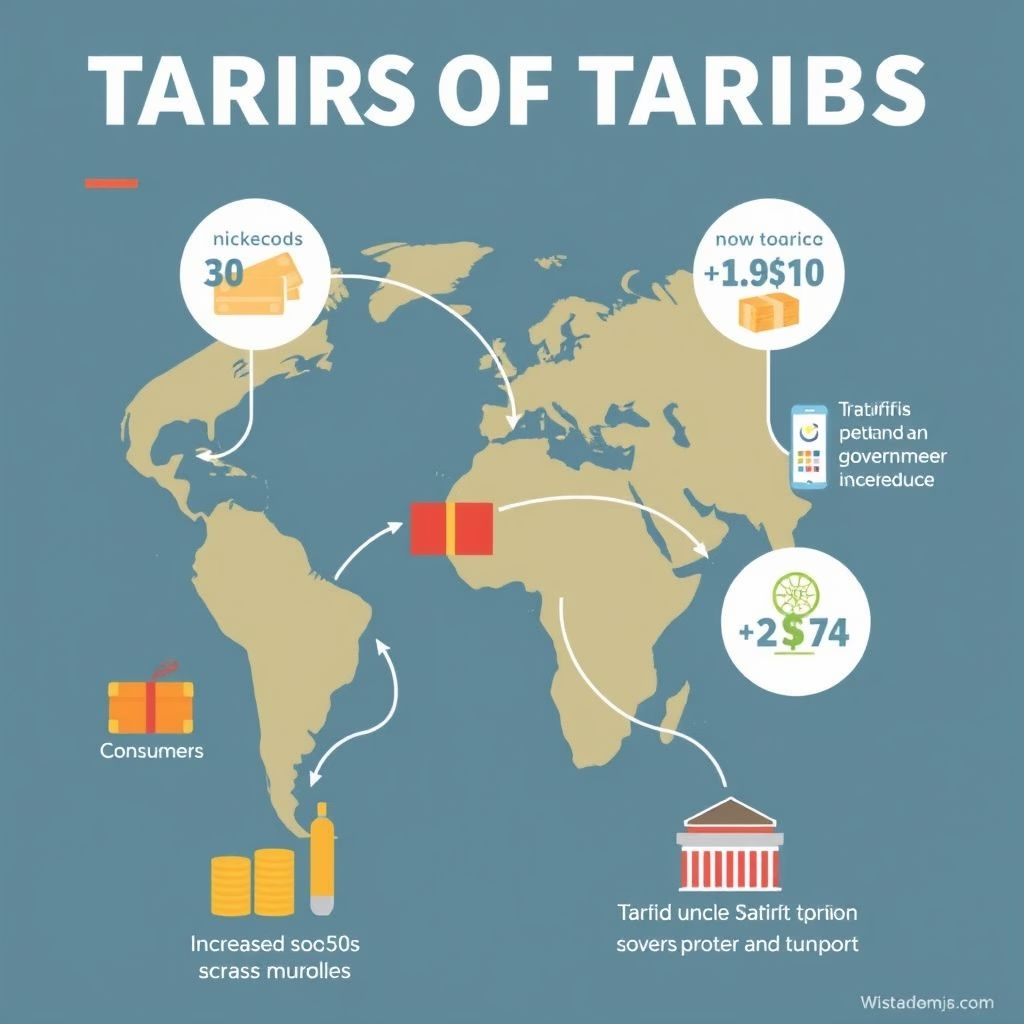Decoding Tariffs: Taxes, Trade Wars, and Their Impact on You

Decoding Tariffs: Taxes, Trade Wars, and Their Impact on You
In the complex world of international economics, the word “tariff” often surfaces, sparking discussions about trade, politics, and the prices we pay for goods. But what exactly is a tariff? And how do these seemingly simple taxes on imports influence our lives and the global economy? This blog post will break down the fundamentals of tariffs, exploring their purpose, effects, and historical context.
What is a Tariff?
At its core, a tariff is a tax imposed by a government on imported goods and services. Essentially, it’s a fee levied on products that cross a country’s border. This tax can be applied to a wide range of items, from raw materials to finished consumer goods. The fundamental purpose of a tariff is to increase the cost of these imported items.
Why Are Tariffs Imposed?
Governments employ tariffs for a variety of strategic reasons. The primary motivations include:
- Generating Revenue: Tariffs can be a significant source of income for governments, contributing to their budgets and funding public services.
- Protecting Domestic Industries: By making imported goods more expensive, tariffs can shield local businesses from foreign competition. This can safeguard domestic jobs and encourage the production of goods within the country.
- Influencing International Trade Relations: Tariffs can be used as a tool in trade negotiations, a form of economic leverage, or even a weapon in trade disputes. They can be imposed to retaliate against unfair trade practices or to pressure other countries to change their policies.
The Economic Impact: Winners and Losers
The effects of tariffs are far-reaching and often complex. While they can provide some benefits, they also come with significant drawbacks. One of the most immediate effects is that tariffs increase the price of imported goods. This can lead to several consequences:
- Reduced Consumption: Higher prices can discourage consumers from purchasing imported goods, leading to a decrease in demand.
- Increased Demand for Domestic Alternatives: As imported goods become more expensive, consumers may turn to domestically produced products, boosting demand for local businesses.
- Potential Inflation: The increased cost of imported goods can contribute to overall inflation, raising the prices of various products and services.
While some domestic industries may benefit from protection, economists generally consider tariffs to have negative effects on economic growth and welfare. The consensus among economists leans towards the benefits of free trade, which allows goods and services to flow freely across borders, fostering competition, innovation, and economic efficiency.
Types of Tariffs
Tariffs aren’t a one-size-fits-all concept. They can take different forms. Two common types are:
- Ad Valorem Tariffs: These are calculated as a percentage of the value of the imported good. For example, a 10% ad valorem tariff on a product worth $100 would result in a $10 tariff.
- Specific Tariffs: These are a fixed amount per unit of the imported good. For example, a specific tariff might be $5 per imported shirt.
A Brief History of Tariffs
The use of tariffs dates back centuries. Evidence suggests they were employed even in ancient Athens. Throughout history, tariffs have been a recurring feature in international trade. The United Kingdom, for instance, heavily utilized tariffs in its earlier history, and the United States has a complex history with tariffs. From the Smoot-Hawley Tariff Act of 1930, which is widely considered to have exacerbated the Great Depression, to more recent trade disputes, tariffs have consistently played a significant role in shaping the global economic landscape.
Conclusion
Tariffs are a multifaceted economic tool with a long and storied history. While they can serve specific purposes, such as generating revenue and protecting domestic industries, their impact on economic growth and consumer welfare is often debated. Understanding the mechanics and implications of tariffs is crucial for navigating the complexities of international trade and the global economy.
For further reading, consult the following resources:
https://www.investopedia.com/terms/t/tariff.asp
https://en.wikipedia.org/wiki/Tariff




